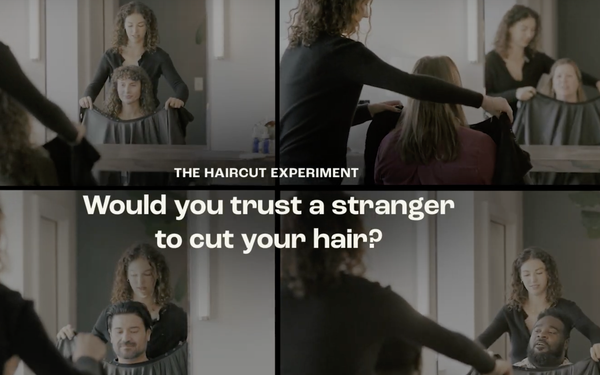
“Would you trust a
stranger to cut your hair?” begins a new commercial.
The stranger in this case is Dr. Raj Shah, chief medical director of low-cost health plan administrator Centivo, as he deals with
skeptical customers in a hair salon.
“I’m wondering why people see the same hair stylist, but they don’t see the same primary care doctor,” says Dr. Shah in
six-year-old Centivo’s first-ever brand campaign.
Centivo, the campaign stresses, allows consumers to always see the same primary care doctor (PCP) -- for free.
The ad,
though, is not really targeted to consumers who often rely on urgent care and emergency rooms for their health needs – but rather to companies with 50 employees up to about 3,000, and to the
health insurance brokers who serve those employers. The campaign, created by the Territorial agency, is running in five of the markets where Centivo now operates -- the New York metro, Wisconsin,
Central Florida, St. Louis and Kansas City, Mo.
advertisement
advertisement
The commercial, produced in :15, :30 and 2:00 versions, was filmed at an actual
Milwaukee salon using real stylists and customers in “guided conversations,” Centivo’s CMO Frank Pedersen tells Marketing Daily. It’s running on LinkedIn, Meta platforms
(Facebook, Instagram), Google Search, and connected TV -- via both LinkedIn’s CTV network and The Trade Desk’s Choozle platform,
The campaign also includes static ads and a
carousel on LinkedIn and Meta, as well as digital out-of-home in such location as airports and grocery stores. Media agency is GrowAsMedia.
In Wisconsin, Centivo’s ads are co-branded
with Business Health Care Group, an employer coalition.
The campaign is slated initially for a two-month flight, Pedersen says, with likely leveraging of campaign elements from August to
October as insurance open enrollment periods get rolling.
The main aim is to drive awareness among employers and brokers, with Centivo partnering with Cint for an ongoing brand lift study
throughout the campaign, Pedesen notes. A secondary goal, he adds, is more engagement on Centivo.com, which serves as the call-to-action on all ad materials, which should hopefully result
“in more inbound requests for conversations and demos, more broker meetings, more employer meetings.”
While the campaign itself is targeted to what Pedersen calls
“middle-market employers,” Centivo’s current roster of 130 clients can be much larger, with the list including JPMorgan Chase, United. Airlines and JetBlue.
Centivo now
has 100,000 consumers on board. They get to choose their PCPs from hospitals, health systems or other doctor networks in the served markets. In New York, for example, Mount Sinai and Northwell docs
are available, and in Florida, Orlando Health.
While other companies do what Centivo does, Pedersen cites “the status quo” as “the biggest competitor.” Employers
and brokers, he explains, “don't want to make a change” despite such statistics as premiums going up 10% annually and Americans not being able to ”afford to see the doctor, even if
they are insured -- because all they could afford are high-deductible plans with significant premiums, copays and co-insurance.”
Hence, the commercials’ final question, “How
dare we?”
“It is so common sense what we’re providing….to see your primary care doctor for free…. a very simple, straightforward health plan with no
deductibles, no coinsurance, very low co-pays for specialty care.” So the campaign, he says, asks viewers to consider if something so simple can be true.
“If you go see your
primary care doctor, research shows that you save money over time and you stay healthier over time because the primary care physician essentially is your quarterback for your health,” adds
Pedersen. “Maybe Americans should consider seeing the same doctor who knows you best and can advise you."